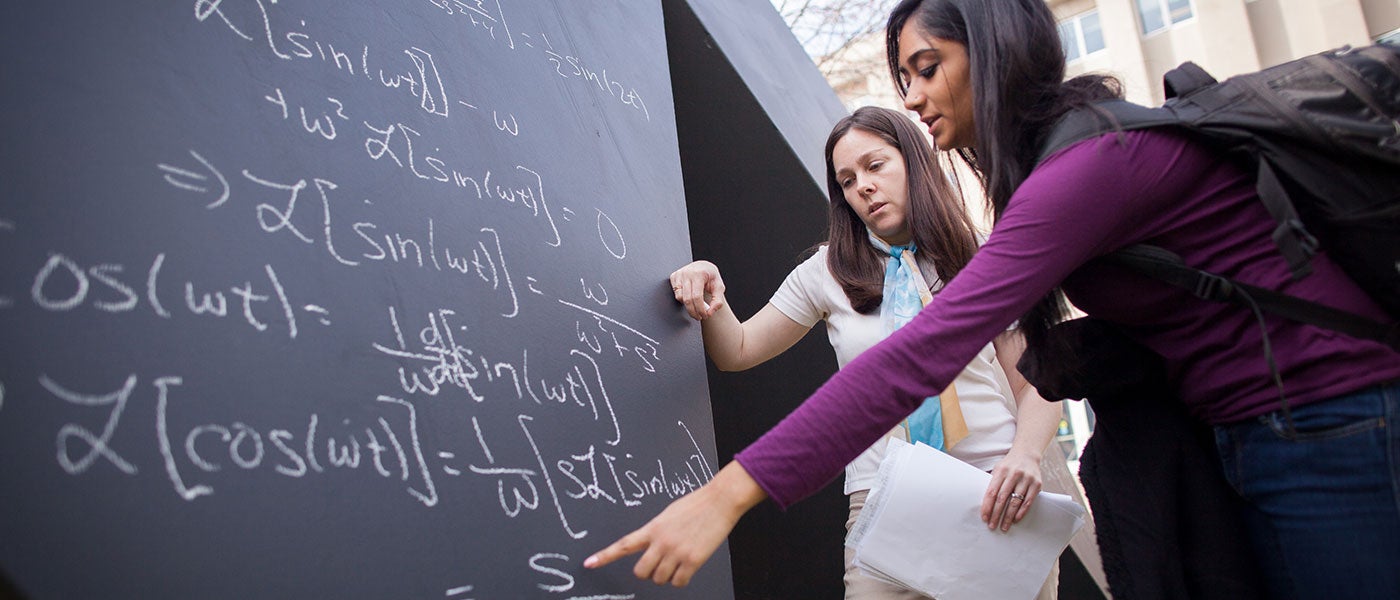

Elizabeth hated seeing the word "passion" used in connection to mathematics. On the one hand, she knew that passion without hard work doesn't accomplish anything. On the other, she feared that pervasive talk about how "passionate" mathematicians supposedly are about their field could drive away students who are interested and talented but who sometimes get bored or actually can imagine doing something else with their lives (which is to say, all of us, although we're trained to believe we shouldn't admit to it).
Nonetheless, if there was a part of her job that Elizabeth was passionate about, it was communicating about mathematics, in all forms and at all levels.
Here is a collection of things that Elizabeth wrote and said to educate people in various audiences, from the general public up to researching mathematicians, about mathematics and what mathematicians do.
|
Linear Algebra, with Mark MeckesCambridge University Press, 2018. |
|
The Random Matrix Theory of the Classical Compact GroupsCambridge University Press, 2019.Full text (pre-copy editing version; page numbers may differ from the final version) |
An explanation for a lay audience of the idea of axiomatic probability, the law of large numbers, and the central limit theorem.
A survey of classical and recent results about eigenvalues of random matrices, written for mathematicians and others who study and use matrices but may not be accustomed to thinking about randomness.
Course notes from the 2014 Women and Mathematics program at the Institute for Advanced Study, 2014. These are supplanted by the book The Random Matrix Theory of the Classical Compact Groups above, but are kept available because they have been cited several times.
Brief notes for a class Elizabeth taught for Math Corps Cleveland.
This brief essay, along with a response by Karen Uhlenbeck, has now been published as part of "Brilliance and Generosity of Heart": Elizabeth Meckes (1980—2020) in the March 2022 issue of Notices of the American Mathematical Society, by Della Dumbaugh.
This was probably Elizabeth's shortest published piece of writing, but the venue she was most proud to be published in.
Wonderful family and friends, some theorems.